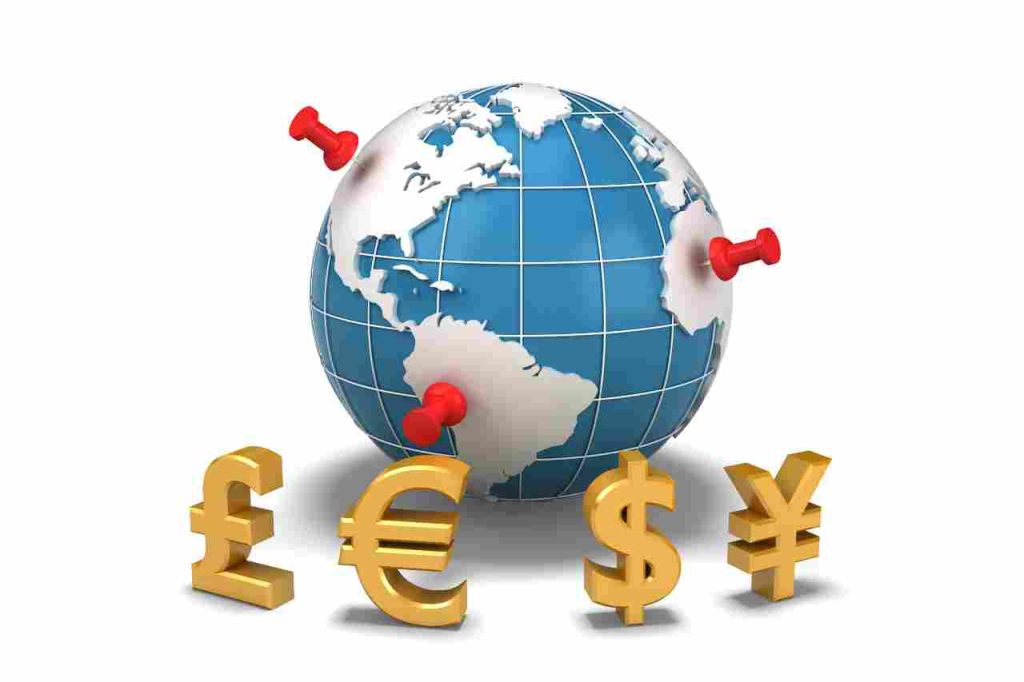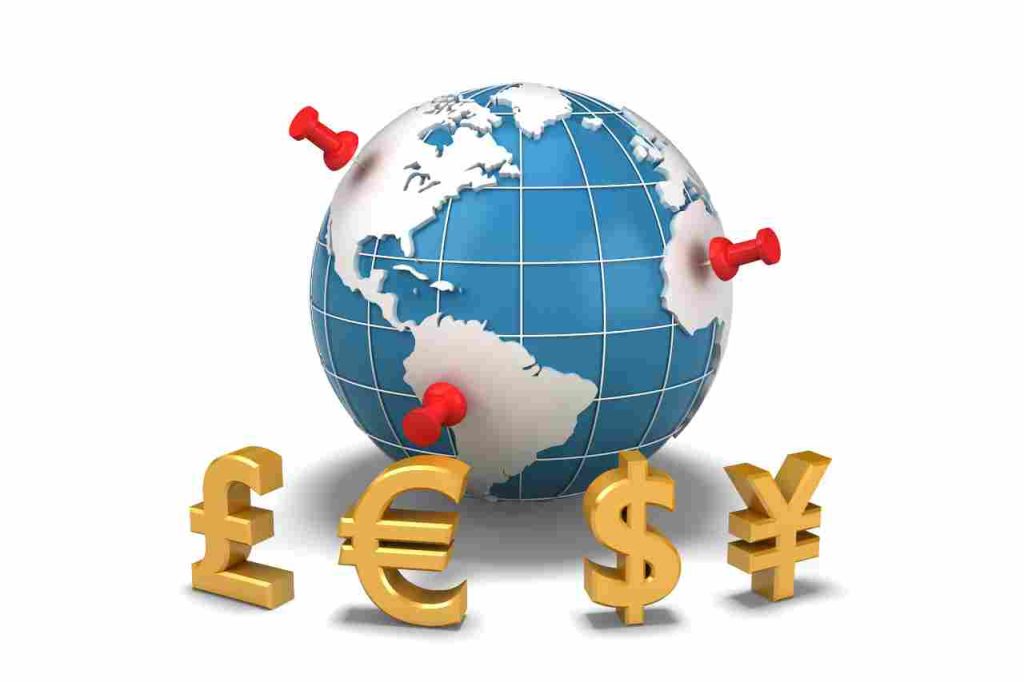Table of Contents
For people and organizations wishing to diversify their portfolios and take advantage of possibilities outside of their home markets, global investing has emerged as a critical approach. International calls are alluring because of the possibility for more significant profits, access to a variety of sectors, and contact with economies that may be in various stages of development.
However, along with these opportunities come unique challenges and risks that investors must navigate. In this article, we will explore the world of global investing, examining its options and the challenges investors face when venturing into international markets.
Understanding Global Investing
Global investing, also known as international investing or cross-border investing, involves the allocation of capital in assets located outside of one’s home country. This can include investments in foreign stocks, bonds, real estate, and other financial instruments.
The primary goal of global investing is to achieve portfolio diversification, reduce risk, and potentially enhance returns by accessing new markets and asset classes.

Opportunities in International Markets
Diversification
By distributing investments over many assets or markets, diversification is a fundamental investing approach that seeks to lower risk. It entails distributing money to various nations and areas in the context of global investing. The basic tenet of diversification is the independence of foreign investments or markets.
For instance, when one nation’s economy is prospering, another one can be going through a downturn. This implies that investors can reduce their exposure to the risk associated with the performance of a particular market by owning investments across various locations.
The power of diversification lies in its ability to mitigate the impact of market volatility. When one market experiences a downturn, the losses in that market can be offset, at least in part, by gains in others. This can result in a more stable and less risky portfolio overall.
Additionally, diversification can also provide the opportunity to tap into growth and potential returns in regions that are performing well, thus potentially enhancing the overall performance of an investment portfolio. Ultimately, it’s a strategy that helps investors balance risk and reward by not putting all their eggs in one basket or, in this case, not investing all their capital in one market.
Access to Emerging Markets
Access to emerging markets is a compelling aspect of global investing, offering investors the chance to participate in the growth stories of developing economies. Emerging markets are typically characterized by rapid economic expansion, increasing industrialization, and growing middle class.
These markets often exhibit untapped potential in various sectors, from technology and manufacturing to consumer goods and services. Investing in emerging markets can present unique opportunities for substantial returns, and here’s why:
First and foremost, emerging markets are often at an earlier stage of economic development compared to their more mature counterparts. This means they have more incredible room for growth, which can translate into higher investment returns.
As these economies evolve, they may experience surges in consumer demand, infrastructure development, and technological advancements, all of which can drive the profitability of companies operating within them.
Additionally, investing in emerging markets can offer diversification benefits. As mentioned earlier, different countries and regions may follow independent economic cycles. When developed markets are stagnant or experiencing slower growth, emerging markets might be in the midst of a boom.

This can help mitigate portfolio risk and enhance overall returns by balancing exposure across various economic stages. However, it’s essential to note that investing in emerging markets also comes with higher stakes, including political instability, currency volatility, and less-developed regulatory frameworks.
Therefore, careful research and risk management are crucial when seeking opportunities in these dynamic markets.
Industry Exposure
Industry exposure in the context of global investing refers to the opportunity for investors to diversify their portfolios by gaining access to prominent industries in other countries that may not be well-represented in their own domestic markets. Different nations often excel in specific sectors due to historical, economic, or technological advantages.
For instance, the United States is a global leader in technology, with Silicon Valley serving as a hub for innovation and tech giants like Apple and Amazon dominating the market. In contrast, Germany is renowned for its robust manufacturing sector, boasting companies like Volkswagen and Siemens.
By investing globally, individuals and institutions can tap into these specialized industries, potentially enhancing their portfolio’s risk-adjusted returns.
This industry diversification strategy offers several advantages. Firstly, it allows investors to reduce their reliance on the performance of a single sector or market, mitigating the risk associated with over-concentration. Secondly, exposure to different industries provides the potential for capitalizing on sector-specific growth trends and opportunities.
If an investor’s home market lacks representation in a burgeoning sector like renewable energy, global investing enables them to participate in this growth story by investing in companies from countries at the forefront of renewable technology.
Overall, industry exposure through global investing not only broadens investment horizons but also provides the potential for improved portfolio performance by harnessing the strengths of various industries across the globe.

Currency Diversification
Currency diversification is a crucial aspect of global investing that involves holding assets denominated in various currencies. When investors venture into international markets, they inevitably encounter different currencies due to the diverse geographic locations of their investments.
This exposure to multiple currencies can serve as a valuable strategy for mitigating currency risk and potentially boosting investment returns.
Currency risk, commonly referred to as exchange rate risk, results from changes in one currency’s value about another. When an investor owns assets in other currencies, they run the risk of those currencies’ values fluctuating negatively about their own. This currency market turbulence may affect the total profits of overseas investments. Nevertheless, currency diversification reduces this risk.
By holding assets in different currencies, investors can spread their currency risk, reducing their vulnerability to the depreciation of a single currency. Moreover, currency diversification can offer the potential for gains through currency appreciation. If a foreign currency strengthens relative to the investor’s home currency, the returns on investments denominated in that currency will increase when converted back to the investor’s home currency.
This means that not only can currency diversification help protect the value of investments, but it can also provide an additional source of return when foreign currencies appreciate.
Political and Regulatory Arbitrage
Political and regulatory arbitrage is an idea in international investing that entails finding investment opportunities and perhaps making sizable returns by taking advantage of variations in political and regulatory conditions between nations.
It accepts that different governments and regulatory organizations may enact laws and rules that influence various facets of the economy and financial markets. Investors who are aware of these variables might put themselves in a position to profit from beneficial adjustments or differences in these policies.
One typical example of political and regulatory arbitrage is tax optimization. Some countries offer tax incentives or lower tax rates for specific types of investments, such as research and development credits, renewable energy projects, or foreign direct investments.
Savvy investors may choose to allocate capital to regions where tax benefits align with their investment strategies to maximize returns.

Additionally, changes in regulations or government policies can create opportunities. For instance, a country may decide to deregulate a particular industry, opening it up to foreign investment and competition. This deregulation can lead to significant gains for investors who enter the market early and capitalize on the newfound opportunities.
Political and regulatory arbitrage requires a deep understanding of the political landscape and regulatory frameworks in various countries. It also necessitates a proactive approach, as investors must monitor developments and be ready to adjust their investment strategies in response to changing conditions.
While it can be rewarding, political and regulatory arbitrage also carries risks, as policy changes can sometimes adversely affect investments. Therefore, thorough research and risk assessment are essential for this investment strategy.
Challenges in International Markets
While global investing offers a range of benefits, it is not without its challenges and risks. Here are some of the critical obstacles investors may encounter:
Currency Risk
Currency risk, often known as exchange rate risk or foreign exchange risk, is an important consideration when making investments abroad. It stems from the fact that the value of various currencies is influenced by many economic, geopolitical, and market factors.
If investors possess assets denominated in foreign currencies, they run the risk of these currency movements having an impact on their investment returns, either positively or negatively.
The primary source of currency risk is the relative movement in exchange rates between the foreign currency and the investor’s home currency. If the foreign currency weakens or depreciates relative to the home currency, the investor will receive fewer units of their home currency when converting their investment returns, which can lead to reduced returns or even losses.
Conversely, if the foreign currency strengthens or appreciates, the investor will receive more units of their home currency, potentially enhancing their returns.
A worldwide investment portfolio’s overall performance can be significantly impacted by currency risk. Consider a US investor who owns euros-denominated European equities as an illustration.
When converted back into dollars, the profits on those European equities will be smaller if the euro declines in value compared to the U.S. dollar than they would be if the exchange rate had stayed unchanged or increased in the investor’s favor.
Global investors must thus manage currency risk, and they frequently employ techniques like currency hedging, diversification, and cautious asset selection to reduce its potential negative consequences and improve the stability of their returns.

Political and Economic Instability
International markets may become unclear due to political events like elections or changes in governmental policies. Market volatility and economic instability may be caused by geopolitical conflicts. To manage the constantly shifting political and economic environments in many nations, investors must be vigilant and adaptable at all times.
Regulatory Differences
Investments are governed by the regulatory systems and tax laws unique to each nation. These requirements can be challenging to comprehend and time-consuming to follow. Investors frequently need to consult a specialist to assure compliance and reduce unfavorable tax consequences.
Cultural and Language Barriers
For international investors, cultural differences, business customs, and linguistic barriers may be pretty challenging to overcome. Forging connections and successfully conducting business, it’s essential to communicate well and understand regional cultures.
Misunderstandings can result in expensive errors or missed opportunities.
Lack of Information
It might be not easy to find trustworthy information regarding overseas businesses and marketplaces. Due diligence and extensive research might be difficult to do as a result of making investing selections. To close this knowledge vacuum, investors may need to depend on regional authorities or specialist research services.
Time Zone Differences
Operating in different time zones can create challenges in monitoring investments and responding to market events on time. Investors may need to adjust their schedules or use technology and trading platforms that accommodate these differences.
Strategies for Global Investing Success
To navigate the opportunities and challenges of global investing successfully, investors should consider adopting the following strategies:
Diversify Wisely
Diversification remains a cornerstone of successful investing. Spread investments across different countries, regions, and asset classes to reduce risk.
Currency Hedging
To reduce currency risk, think about employing currency hedging techniques. Financial tools like forward contracts and currency options may be used in this.

Stay Informed
Keep abreast of global economic and political developments. News and information can provide valuable insights into potential investment opportunities and risks.
Seek Professional Advice
Consult with financial advisors who specialize in global investing. They can guide asset allocation, risk management, and tax considerations.
Use Exchange-Traded Funds (ETFs) and Mutual Funds
These investment vehicles can expose a broad range of international markets and industries, reducing the need for individual stock selection.
Understand Tax Implications
Be aware of the tax implications of investing internationally, including withholding taxes, capital gains taxes, and reporting requirements in both your home country and the foreign country.
Long-Term Perspective
Approach foreign investment with a long-term perspective. An internationally diversified portfolio may generate positive returns over the long run, even if markets can be volatile in the short term.

Conclusion
Global investing offers a world of opportunities for investors looking to expand their horizons beyond domestic markets. The potential for diversification, exposure to emerging markets, and access to different industries make international investing an attractive prospect.
However, investors must be mindful of the unique challenges, including currency risk, political instability, and regulatory differences, that come with investing in international markets. By adopting sound strategies, staying informed, and seeking professional advice, investors can harness the potential of global investing while managing the associated risks.
With the right approach, global investing can be vital in building a well-balanced and resilient investment portfolio in an increasingly interconnected world.










